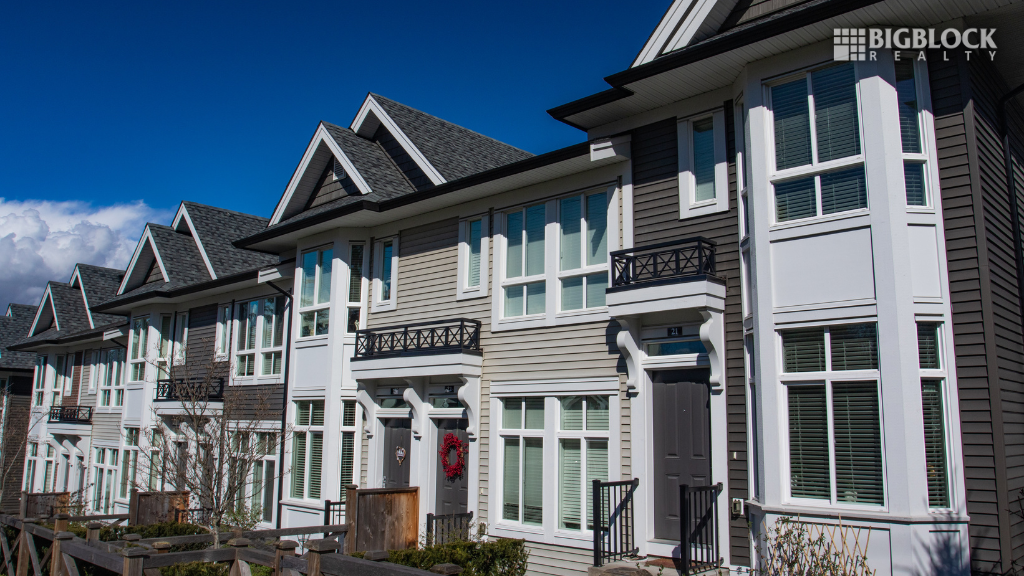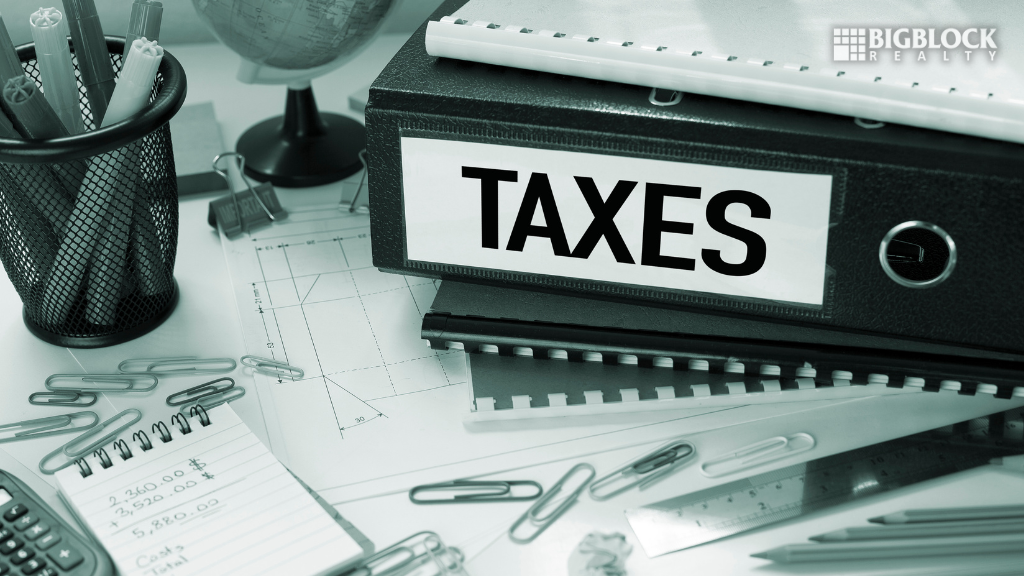 During the current troubling economic times, many people wonder if should you buy rental properties now or wait?
During the current troubling economic times, many people wonder if should you buy rental properties now or wait?
Today’s media headlines claim impending inflation and recession. This frightens Americans. Frightened people don’t buy rental properties. Yet, you should consider how inflation affects real estate markets.
KEY TAKEAWAYS
- Ignore the news media noise about our troubling economic times with high inflation, labor strikes, and a possible recession.
- Find out how rental property investing protects you from inflation.
- Rental investments offer tax benefits like business deductions and depreciation.
- Learn how to Boost Your Depreciation over your first years.
- Use a Cost Segregation Study to accelerate your depreciation for added tax benefits.
- Find out how real estate appreciation during inflation increases your equity tax-free until you sell.
- See how low fixed-rate long-term debt on rentals appreciating during inflation benefits you.
- Learn how to defer your capital gain tax forever when using an IRS 1031 Tax-Deferred Exchange.
- See how your heirs benefit financially when inheriting your tax exchange properties.
The Remainder of 2022 Looks Like High Inflation and Recession
National and global news media report troubling times for the U.S. economy. Alarming headlines like:
- Higher Mortgage Rates: ABC News reported “US mortgage rates jump to the highest level in 14 years”;
- Global Recession: CNN claims, “FedEx warns of a global recession”;
- Fed Hikes Rates: The Federal Reserve expected to hike rates even more; and
- Wall Street Falls: Recently, the news media reported “Stocks fell broadly on Wall Street for another week of sizable losses”.
What does this bad news mean?
The dollar value falls during inflation. More money is spent on daily needs like gas and groceries leaving less money to save.
This raises the question:
Should You Buy Rental Properties Now Or Wait?
Before answering “yes” or “no”, you must consider how taxes affect real estate during inflationary times. You might be surprised.
Understanding How Taxes Affect Rental Properties During Inflation
Taxes are now the largest expense for many Americans. The Tax Foundation Organization reveals that “Americans lost more money paying taxes than they spent on clothing, food, and housing combined.” Yikes!
Have you noticed the increasing number of labor strikes for higher wages across the country? That’s because during inflationary times the number of labor strikes increases leading to higher wages for union members.
What do Labor Strikes have to do with Taxes?
Increased wages lead to higher income tax brackets. For example, if you earn $110,000 per year you are in the 24% tax bracket. Though, during inflation, your income may increase to $200,000. Sounds good, right? However, your higher income puts you into the 32% tax bracket.
While paying more taxes being in a higher tax bracket seems bad, you can take advantage of it. How?
Higher taxes protect you during inflation. Sounds crazy?
Not so, if you use real estate investments to your advantage. We’ll teach you how real estate investments help as a hedge against inflation while reducing taxes.
How Real Estate Investing Works with Inflation
Forbes sums it up nicely, “historically, real estate does well during inflation.”
How? When inflation forces an increase in costs, rents increase too. As our nationwide strikes continue this year, wages will increase. Thus, workers can afford to pay higher rent. Landlords with short-term rents can increase rents often. Also, when yearly leases expire, landlords increase rents.
See how inflation increases wages which leads to workers affording to pay higher costs.
Now, let’s see how debts play into inflation and taxes.
How Debt Plays Out During Inflation
Real estate investors love leverage. That’s because there are good and bad debts. For instance, bad debts include buying things on credit that consumers can’t afford usually with credit cards. Good debts include leveraging income-producing real estate. Especially, when your long-term debt is on a low fixed rate interest rate.
Your payments remain the same with long-term fixed investment debt even during inflation. For example, a $ 2,000-a-month debt for a rental unit looks better when the dollar’s power decreases. If you kept your $2,000 in the bank it suffers during inflation. That’s why “Inflation punishes savers and rewards borrowers.”
Due diligence with proper planning results in low fixed long-term debt on rentals that appreciates during inflation. That’s why leverage becomes a good hedge against inflation.
How Real Estate Tax Deductions Benefit You During Inflation
The IRS treats long-term real estate investors like business owners. Thus, long-term investors enjoy depreciation and business expense deductions.
Let’s explore depreciation and business expenses.
Depreciation
Real estate investors love depreciation. So, how does depreciation work for you?
Depreciation of rentals: “Most U.S. residential rental property depreciates at 3.636% each year for 27.5 years.”
Depreciation Example
You buy a rental property for $250,000. The land value is $100,000 leaving the building value at $150,000. Depreciating the building over 27.5 years gives you an annual depreciation of $5,454 per year. Even if you leveraged the entire property 100% or paid all cash, the IRS lets you depreciate.
Tip: If you can’t use the entire annual depreciation during a tax year, the IRS lets you carry forward the deduction into future years. You can use the carry forward to offset other passive income taxes.
Bonus: How to Boost Depreciation
Now comes the fun part! The KBKG tax consulting firm shows you how to boost your depreciation! It works in three stages:
- Increase your depreciation with a Cost Segregation Study;
- Rather than depreciate your rental property over 27.5 years;
- Accelerate part of your depreciation during the first few years.
How to do this?
Hire an expert to prepare a Cost Segregation Study that breaks down the value of your structures during the first few years. “The primary goal of a Cost Segregation Study is to identify all construction-related costs that can be depreciated over 5, 7, and 15 years.”
Instead of deducting everything over 27.5 years, identify the items that depreciate faster than the building. For example, the Fixtures, Furniture and Equipment (FF&E), fencing, and plumbing depreciate over 5 or 7 years.
This is known as a “Bonus Depreciation”.
Keystone CPA Inc., a California real estate investments tax strategies firm published an example of a Bonus Depreciation:
Assume you bought a $500,000 rental property with $100,000 down. The land valued at $100,000 leaves the value of the structure at $400,000. Normally, your annual depreciation is $14,500.
Depending upon the qualifying fixtures, in your first year, you can accelerate the depreciation up to $80,000. Thus, you can offset the $80,000 against your rental income instead of $14,500.
Now, let’s add inflation to this example.
If you are in the 24% tax bracket the $80,000 depreciation saves you $19,200 in taxes. Yet, if inflation bounces you into the 32% bracket, you can save $25,600 in your first year.
Tip: Unused depreciation carries over into future tax years to offset passive income.
So, high inflation leading to greater income saves you more money at a higher tax bracket.
Have questions?
How Housing Rental Properties Appreciation Works
Along with depreciation, you will benefit during inflation because of increased appreciation of your properties not taxed until you sell. Greater appreciation increases your equity which is not taxed until you sell.
Tip: There is a way to defer taxes after you sell.
An IRS 1031 Tax-Deferred Exchange lets you sell rental properties and defer the taxes when you use the proceeds to buy a business or real estate investment properties. How?
Example of how a Tax-Deferred Exchange works. You sell a $400,000 rental property that appreciates during inflation to $600,000. Your $200,000 appreciation remains tax-free until you sell. Yet, a deferred exchange lets you use the appreciated funds to buy more business or investment real properties tax-free.
Want to learn about Tax-Deferred Exchanges? Read our informative post explaining How 1031 Exchanges Work.
You will learn how Tax-Deferred Exchanges:
- Lets you defer capital gains taxes when selling business or investment real properties;
- If you use all proceeds to buy more business or investment real properties within 180 days;
- You can use 1031 Exchanges as many times as you want; and
- Upon passing away, your heirs inherit the real properties free of any capital gains and inheritance taxes.
Thus, you can avoid capital gains taxes forever and your heirs’ profit by not owing any deferred taxes when they inherit. Isn’t that great?
General Business Tax Deductions
The IRS differentiates between “active” and “passive” real estate investors. Active investors enjoy more tax benefits and deductions. Due to its complexity, it’s best to read the useful Investopedia article explaining the different active investor’s tax benefits: “Rental Property Tax Deductions”.
Also, the IRS published a useful explanation of all the general business tax deductions for real estate rental investors. Examples include:
- Advertising for tenants;
- Insurance;
- Depreciation of structures;
- Materials costs;
- Maintenance & repairs;
- Mortgage interest;
- Property taxes;
- Operating costs; and
- Supplies.
Should You Buy Rental Properties Now Or Wait? – Conclusion
Forget about the scary news media stories. If you ask “Should You Buy Rental Properties Now Or Wait?”, we answered by suggesting buy now for several reasons.
Using inflation to your advantage combats wealth attrition. Follow our suggestions and consult with an experienced real estate attorney or a CPA to plan your buying strategy.
Interested in Buying Investment Rental Properties in San Diego?
Big Block Realty offers you experienced local Realtors to help you achieve your buying strategy to take advantage of our inflationary times in the greater San Diego area. Let the media continue scaring away your competition from buying rental properties.
Top 50 in the U.S.: Big Block Realty is recognized as the 49th Best Independent Real Estate Brokerage in the U.S. out of 106,000 real estate brokerages by The Wall Street Journal partnering with Real Trends Rankings.
Best in San Diego: Big Block Realty is also recognized in 2022 as the best brokerage in San Diego for four straight years (2018 – 2021) by the LocalBest.com site.
Contact us today to see what inflation solution rental investment opportunities await you in San Diego County.
Steven Rich, MBA – Guest Blogger
Search Local Real Estate Below Or Use Our: Home Search Tool:
—
HAVE ANY QUESTIONS?
Let us know, we love to help:
Call: (800) 550 – 3209
or Click: www.BigBlockRealty.com/contact
—
Connect with Big Block…
SUBSCRIBE TO OUR CHANNEL: https://www.youtube.com/@bigblockrealty?sub_confirmation=1
CONNECT WITH US ON SOCIAL HERE: https://bigblockrealty.com/social/
Find us on Instagram: https://www.instagram.com/BigBlockRealty_




